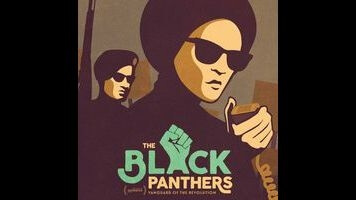A new Black Panthers documentary offers a compelling portrait of a turbulent time

Back in 1967, California governor and future far-right icon Ronald Reagan went on TV to speak out against gun owners. Specifically, Governor Reagan had a beef with members of the Black Panther Party, who’d been following the police around the Bay Area with loaded rifles, keeping a legal distance—and brandishing their weapons openly, as the law required—while silently suggesting that they were ready to strike at the first sign of any brutality. This dispute was one of the first to bring the Black Panthers national attention, and became a vivid illustration of some of the paradoxes, ironies, and injustices in the way the American government treats its black citizens.
Stanley Nelson’s absorbing, provocative documentary The Black Panthers: Vanguard Of The Revolution measures how much and how little has changed since Huey P. Newton and Bobby Seale co-founded the Panthers in Oakland in 1966. Nelson spent nearly a decade compiling interviews with dozens of former members (plus a handful of cops who tussled with the party back in the 1960s) and combed through news archives and government records. The result is an impressively detailed explication of how quickly the Black Panthers rose and fell.
A lot happened in just a few years: sweeping social programs, riots, political assassinations, mass imprisonments, FBI sabotage, dissension in the ranks, and wild shifts in public opinion. Hollywood celebrities like Marlon Brando and Jane Fonda aligned themselves with the Panthers, while broadcast news organizations often carried water for the cops, stoking white America’s fear of armed radicals in their midst. For almost its entire existence, the party teetered between becoming a genuine political force and being tried en masse for treason.
Vanguard Of The Revolution takes a measured, objective perspective on the past, which sometimes works to its detriment. The film can come off as a little dispassionate, which doesn’t always convey the fire of its subject. And Nelson and his interviewees hold back from directly connecting the story of the Black Panthers to today’s Black Lives Matter movement, or to any other 21st century populist uprising, on the left or right—be it Occupy or the Tea Party.
But at the same time, the sense of calm and reflectiveness makes the voices in Vanguard Of The Revolution more persuasive. The aged activists who survived the heat of that time—the ones who joined the party just in time to watch it implode due to pressures both internal and external—have had decades to contemplate what went wrong, and what went right. They talk with justified pride about the free breakfast program for school kids, and the efforts made by visionaries like Fred Hampton to broker treaties between street gangs and forge alliances with white activist organizations, reframing the Panther principle as a unified underclass pushback against oppression. But they also admit that their ranks swelled whenever leaders like Eldridge Cleaver spoke of violent rebellion, and that it was hard to control some of the members who came to the party expressly for the opportunity to strike back against the pigs.
This is where the contemporary relevance comes in—intentionally or not. More than anything, Vanguard Of The Revolution is an honest look at the pros and cons of channeling the anger of the masses. Nelson’s film makes the case that the Black Panthers did more good than harm in their brief moment on the national stage, if only because they gave young African-Americans a different reflection of themselves on television. But their incendiary rhetoric also helped give President Richard Nixon and FBI director J. Edgar Hoover a public mandate to dispense with justice in the name of what they called “law and order.” Vanguard Of The Revolution suggests that if the Panthers could’ve held together and stayed on message, they might’ve won more allies, just by exposing one of the persistent hypocrisies of American society: how everyone says they’re for freedom, until the wrong people start to enjoy it.